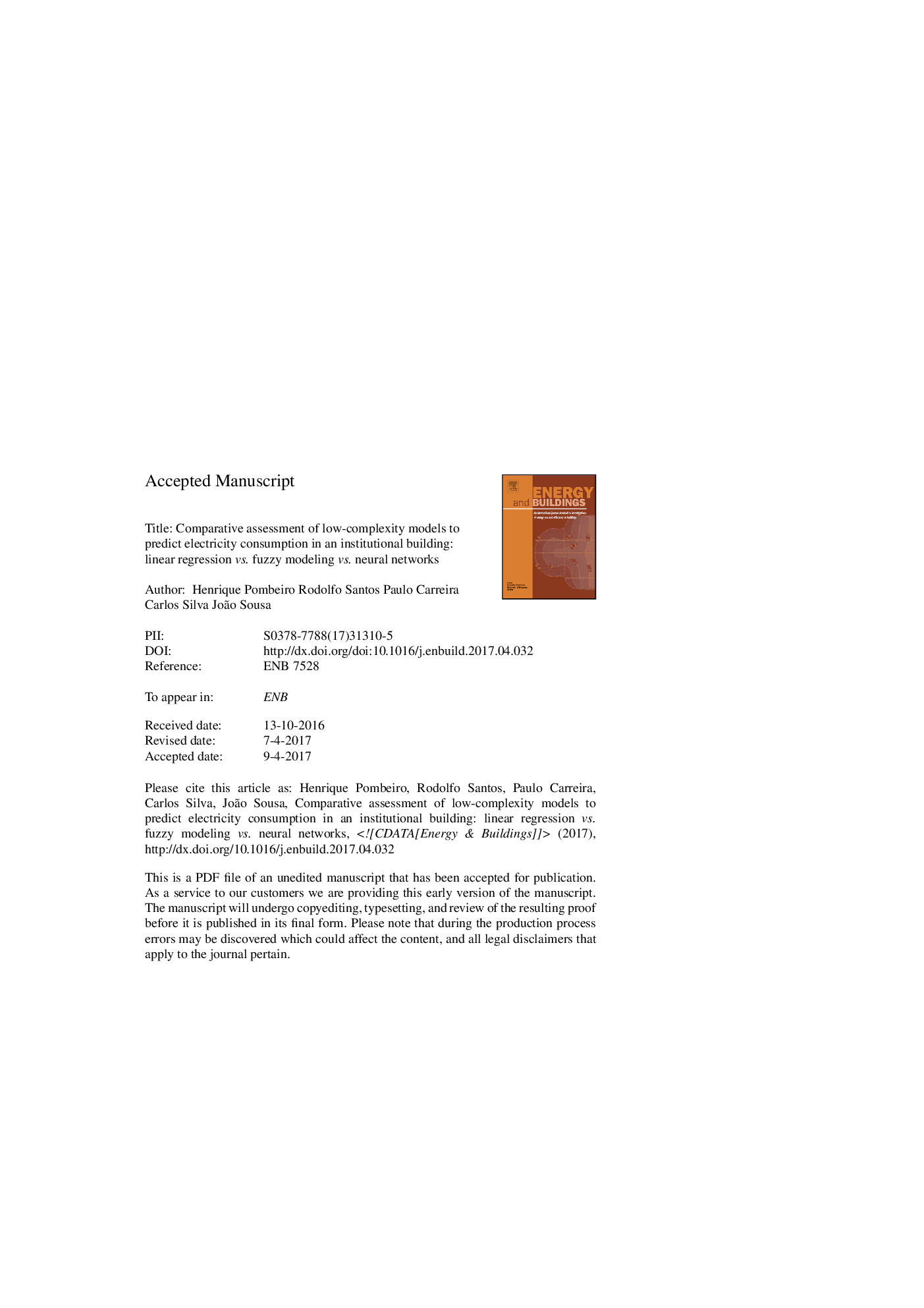| Article ID | Journal | Published Year | Pages | File Type |
|---|---|---|---|---|
| 4919220 | Energy and Buildings | 2017 | 19 Pages |
Abstract
Developing energy efficiency strategies for Intelligent Buildings requires a continuous monitoring of the impacts of energy efficiency measures against baseline scenarios. Since not all consumption events can be linearly described, non-linear models based on fuzzy systems and neural networks are successful where linear models either become inaccurate or too complex to be employed in practice. Herein, we study the adequacy of plain-designed non-linear models to predict energy consumption in a real-world Intelligent Building setting by using simple predictor variables such as time-of-day, weather conditions, and occupancy as estimated from WiFi traffic. The developed Fuzzy Systems and Neural Network models achieve considerably better performance and accuracy indexes than linear regression models, with VAFs equal to 79.3% and 75.7% respectively, and MAE of 5.9 and 7.1Â kWh, respectively, against 36.6% VAF and 12.8Â kWh MAE for linear regression models, thus demonstrating that low complexity non-linear models can be used to accurately describe energy consumption baselines in Intelligent Buildings.
Keywords
Related Topics
Physical Sciences and Engineering
Energy
Renewable Energy, Sustainability and the Environment
Authors
Henrique Pombeiro, Rodolfo Santos, Paulo Carreira, Carlos Silva, João M.C. Sousa,
